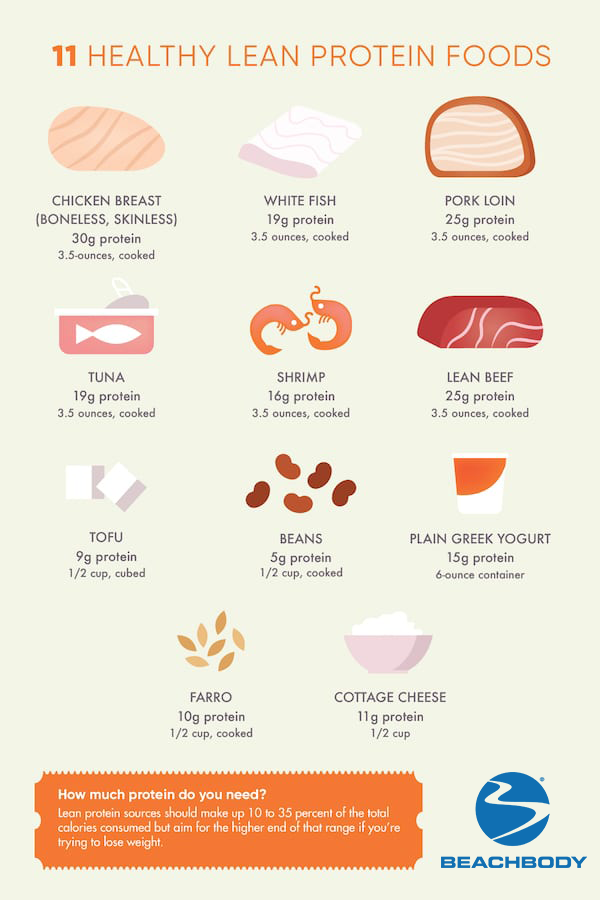Batter Links: Your Gateway to Trending News
Stay updated with the latest trends and insights from around the world.
Lean Protein: Your Secret Weapon for a Fitter Life
Unlock the secret to a fitter life with lean protein! Discover how it fuels your fitness journey and boosts your health today!
The Benefits of Lean Protein: Fueling Your Fitness Journey
Lean protein is an essential component of any fitness journey, providing the necessary building blocks for muscle repair and growth. By incorporating lean protein sources, such as chicken breast, fish, legumes, and tofu, into your diet, you can help your body recover after workouts and enhance your overall athletic performance. Consuming lean protein also aids in promoting satiety, which can assist in weight management by curbing hunger and reducing the likelihood of overeating.
Additionally, lean protein plays a crucial role in boosting your metabolism. When you consume protein, your body expends energy to digest and process it, a phenomenon known as the thermic effect of food (TEF). This means that by prioritizing lean protein in your meals, you can effectively burn more calories throughout the day. To maximize these benefits, aim to include a variety of lean protein sources in your diet, and consider timing your intake around your workouts for optimal muscle recovery and energy replenishment.

How to Incorporate Lean Protein into Your Daily Meal Plan
Incorporating lean protein into your daily meal plan is essential for maintaining a healthy lifestyle. Start by identifying sources of lean protein such as chicken breast, turkey, fish, legumes, tofu, and low-fat dairy. Next, consider planning your meals around these protein sources by preparing them in a variety of ways. For instance, try grilling or baking chicken and fish, or adding beans to salads for an extra protein boost. Not only does this improve the nutritional profile of your meals, but it also helps keep you feeling full and satisfied throughout the day.
To make it easier to include lean protein, create a meal prep strategy that revolves around these proteins. Consider setting aside one day a week to cook in bulk. You can prepare grilled chicken and vegetables, or make a big pot of lentil soup that can be easily portioned out for lunches and dinners. Additionally, keep simple snacks on hand that are high in protein, such as Greek yogurt or almonds. By making these small adjustments, you can significantly enhance your daily intake of lean protein and support your overall health and fitness goals.
Is Lean Protein the Key to Effective Weight Loss?
Lean protein has become a cornerstone in discussions about effective weight loss strategies. By incorporating lean sources of protein, such as chicken breast, fish, beans, and low-fat dairy, individuals can significantly enhance their diet while promoting muscle retention. Protein has a higher thermic effect compared to fats and carbohydrates, meaning the body burns more calories digesting it. Additionally, meals rich in protein can help regulate appetite, leading to reduced cravings and ultimately aiding in calorie control.
Moreover, lean protein supports metabolic health, making it an essential nutrient for anyone on a weight loss journey. Studies have shown that a diet high in protein can increase satiety and lower overall food intake. This can be particularly beneficial during weight loss phases when maintaining muscle mass is crucial. By prioritizing lean protein, individuals not only work towards achieving their ideal weight but also foster long-term healthy eating habits that can sustain their journey well into the future.